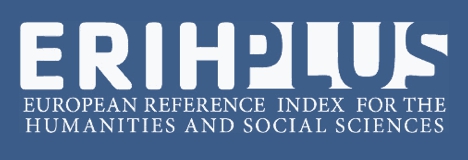Paulo Freire and humanism in education: contributions from a geographical perspective
Abstract
Paulo Freire, although no longer present, is still current in many educational and liberating theories, his writing is still able to emanate hope many educators. The values defended by him in education can be easily appropriated by the teaching-learning process in Geography, In particular guided by Humanist Geography. In such a way, aim was to analyze the main paulofreirianas theoretical contributions, with emphasis on his humanist vision and the possibilities for teaching Geography. It stands out that such research is of theoretical nature elaborated through bibliographical and documentary research. Its main goal is to foment discussions about three main themes still little related: Paulofreiriana theory, humanism in education, school geography.
References
BUTTIMER. Anne. Geography, humanism and global concern. Annals of the Association of American Geographers, Washington, v. 80, v. 1, p. 01-33, mar. 1990.
CASTROGIOVANI, Antonio Carlos. Apreensão e compreensão do espaço geográfico. In: CASTROGIOVANI, Antonio Carlos. Ensino de geografia: práticas e textualizações no cotidiano. Porto Alegre: Mediação, 2012.
DAVIM, David Emanuel Madeira. O método fenomenológico no ensino em Geografia: caminhos para uma aproximação entre cultura e ciência. Trabalho de Conclusão de Curso (Especialista em Geografia). Universidade Estadual Paulista, 2003.
ENTRIKIN, Jhon Nicholas. Contemporary Humanism in Geography. Annals of the Association of American Geographers, v. 66, n. 4, p. 615-632, 1976.
FREIRE, Paulo. Educação e atualidade brasileira. Tese (Concurso para a cadeira de História e Filosofia da Educação da Escola de Belas Artes). Universidade Federal de Pernambuco, Recife, 1959.
_______________. A importância do ato de ler: em três artigos que se completam. São Paulo: Autores Associados; Cortez, 1989.
_______________. A educação na cidade. São Paulo: Cortez, 1991.
_______________. Pedagogia da autonomia: saberes necessários á prática educativa. São Paulo: Paz e Terra, 1996.
_______________. Carta de Paulo Freire aos professores. Estudos avançados, São Paulo, v. 15, n. 42, maio/ago. 2001.
_______________. Educação e Mudança. São Paulo: Paz e Terra, 2008.
_______________. Pedagogia da esperança: um reencontro com a pedagogia do oprimido. São Paulo: Paz e Terra, 2011.
_______________. À Sombra desta mangueira. Rio de Janeiro: Editora Civilização Brasileira, 2012a.
_______________. Educar coma mídia: Novos diálogos sobre educação. Paz e Terra: São Paulo, 2012b.
_______________. Pedagogia da Tolerância. Organização, apresentação e notas Ana Maria Araújo Freire. Rio de Janeiro: Paz e Terra, 2013.
_______________. Pedagogia do oprimido. São Paulo: Paz e Terra, 2014.
FREIRE, Paulo; GUIMARÃES, Sérgio. Dialogando com a própria história. São Paulo: Paz e Terra, 2011.
HEIDEGGER, Martin. Ensaios e Conferencias. Petrópolis: Vozes, 2002.
MARANDOLA JR., Eduardo. Humanismo e a abordagem cultural em Geografia. Geografia, Rio Claro, v. 30, n. 3, p. 393-419, set./dez. 2005.
_________________. Mapeando “londrinas”: imaginário e experiência urbana. Geografia, v. 33, n.1, p. 103-126, 2008.
PÁDUA, Letícia Carolina Teixeira. A Geografia de Yi-Fu Tuan: Essências e Persistências. 2013, 208 f. Tese (Doutorado em Geografia Física). Departamento de Geografia, Universidade de São Paulo, 2013.
SANTOS, Milton. Por uma outra globalização: do pensamento único à consciência universal. São Paulo: BestBolso, 2011, 143 p.
SAVIANI, Dermeval. Histórias das idéias pedagógicas no Brasil. Campinas, SP: Autores Associados, 2008.
TUAN, Yi-Fu. Geography, Phenomenology and Study of Human Nature. The Canadian Geographer, v. 15, n. 3, p. 181-192, 1971.
_______________. Geografia Humanística. In: CHRISTOFOLETTI, A. (Org.). Perspectiva da Geografia. São Paulo: Difel, p. 143-164, 1982.
Keywords
Policy Proposal for Free Access Journals
Authors who publish in this journal agree to the following terms:
a. Authors retain the copyright and grant the journal the right of first publication, with the work simultaneously licensed under the Creative Commons Attribution License which allows the sharing of the work with acknowledgment of the authorship of the work and initial publication in this journal.
b. Authors are authorized to take additional contracts separately, for non-exclusive distribution of the version of the work published in this journal (eg publish in institutional repository or as a book chapter), with acknowledgment of authorship and initial publication in this journal.
c. Authors are allowed and encouraged to publish and distribute their work online (eg in institutional repositories or on their personal page) at any point before or during the editorial process, as this can generate productive changes, as well as increase the impact and The citation of published work (See The Effect of Free Access).





















